
Last time, I attempted to maximize the value of my existing products by introducing a lifetime membership, but so far I haven’t seen an uptick in revenue.
Could it be because I haven’t told anyone about it on social media? Or, for that matter, about the existence of ScaleQuail?
It may be my biggest failing as an entrepreneur that I only post about my new stuff once or twice before moving onto the next thing. But today I’m going to explore why, and either find convenient psychological workarounds, or consciously eradicate those aspects of my personality. (If you’ve never had to do that, you may not be ready for the world of business.)
One of the reasons I don't make excessive noise about my work is because I’m not confident it’s good. Obviously, that’s ridiculous! Badger blog is good. But the silence of my notifications speaks volumes. And because I produced the work myself, feelings can cut to the bone.
Strategic de-personalization is a technique I’ve applied before, but I can’t recommend it. Blocking out memories and emotions just to sell products online is a slippery slope. We’ve all known business leaders who’ve chosen this route, and their cold eyes stay with us long after the meeting is over.
A healthier workaround is to have an automated service do advertising without my knowledge. With a pile of content in the hopper, and a system that publishes at random times throughout the day, I can get my marketing done without worrying about it — or, at least, pushing it into the background with climate change and armies of robot assassins.
Of course there’s software that does this. HootSuite is bird-driven, like ScaleQuail, so it’s the natural choice. With a 30-day trial, I’m off and running. Or, maybe I should say, flying.
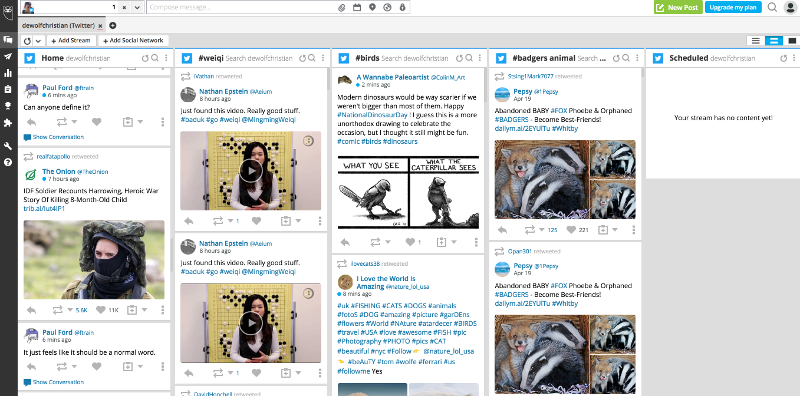
Everything that’s relevant to me in one place.
Alright... wow. Is this what it feels like to be an Influencer? Aw, it tells me how to put tracking links into my posts. And that dashboard. I can target people in specific groups by watching hashtags. This is great. I hope it filters out reaction GIFs. (UPDATE: it does not)
Now that I can see Twitter from the Content Producer point-of-view, I have all the tools I need to do a professional social media blitz. I may not even need to de-personalize as I drive up my follower count with coldly measured, consumable content.
There’s really no excuse for me not to do Twitter campaigns now — unless, of course, I forget to do one.
Forget might not be the exact word, but for days at a time I'll dive into some new project, or have to catch up on six months of backlogged accounting. It’s happened before, and not only for Twitter. Hell, I keep forgetting about my PO box, and I almost never think about my Goodreads account.
This is why I need a general business dashboard, something to keep every active tendril top-of-mind. I would rather do anything but advertise, and there’s plenty else to keep me occupied, but if I’ve got a visualization of all possible business activities, I can see what I’m neglecting, and spread myself out more evenly.
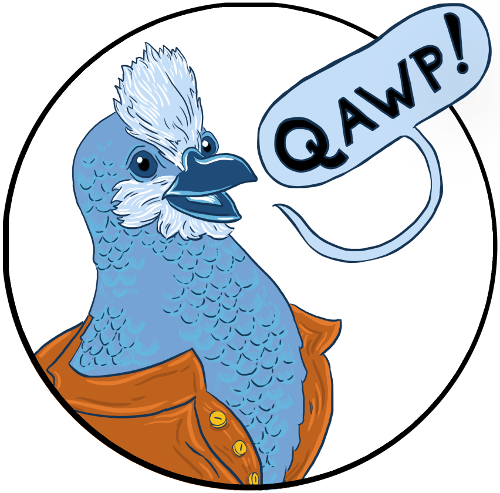
My business tasks generally fall into these categories:
To balance these four needs, I’ll create a QAWP Wheel using an old LP:
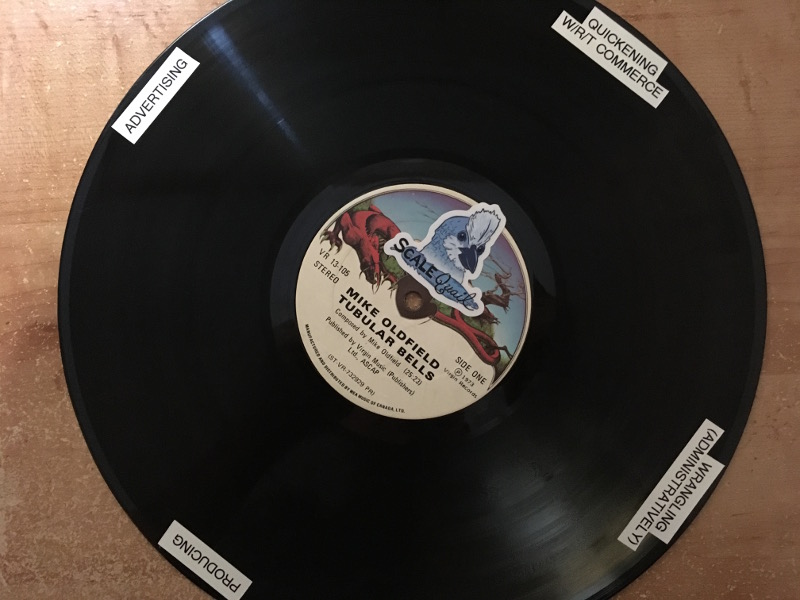
The basic form of a QAWP Wheel. Apologies to Tubular Bells.
From here, I use a labeler to apply my tasks in the appropriate areas, then pin the wheel in my work area where it can freely spin.
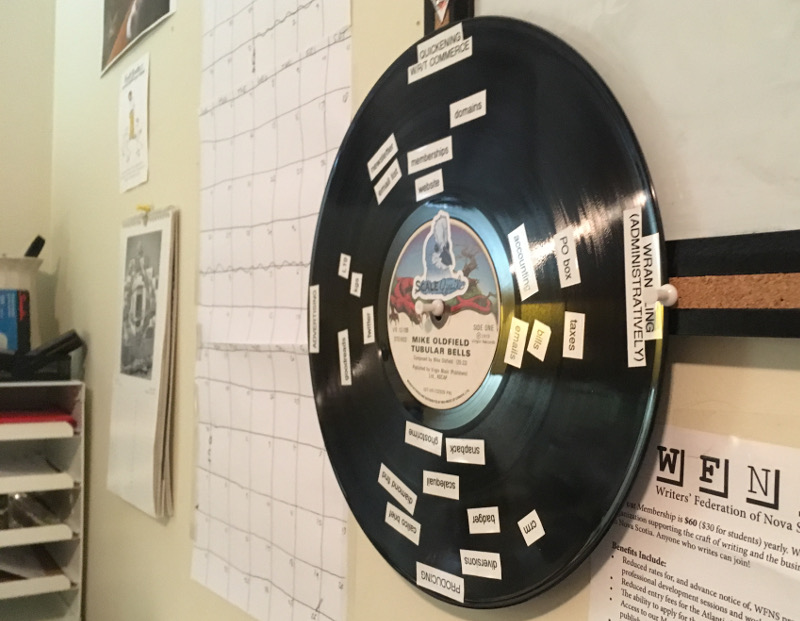
My QAWP Wheel in action. It could also be laid flat if you like the DJ aesthetic.
Now, when I’m in advertising mode, I can fill my Scheduled Tweets queue full of great content and then safely forget about it for a few days. And maybe I’ll finally connect with someone on Goodreads (but still, probably not).
But it’s important that I do communicate with customers directly instead of just passively blasting out words. This is one of those tasks that I won’t voluntarily do, especially if there are other activities available, but luckily, my trusty auto-mailer is up to the task.
Ideally, if someone downloads a book, I’d send them an email to ask what they thought, and ask if they’d leave a Goodreads review. I have all the data I need, so if the user has consented to receive emails, I can set up a one-button auto-sender for eligible users in my rickety admin area:

Crab User got a lot of emails during testing.
I could automate this even more, but I like the control, and I want to be able to address the user by first name in the email only when I know it’s appropriate. A machine may be performing my arduous social tasks, but it still has to feel personal.
One more thing is necessary to complete the illusion:
You can really anger some digital marketers by doing this.
Turn off the tracking! Unless you want every link in the email to come out as a nasty mess of parameters and ruin the personal façade we’re trying to create here. It’s subtle, but people notice.

I AM NOT A ROBOT. PLEASE LEAVE A REVIEW.
Ah, but then I won’t be able to track my opens and click-throughs. You think I care who opens what emails? Oh, I’m supposed to A/B test the subject lines? Guess I should have A/B tested every line in my books, too. Make sure I wrote the right things.
With personal, psychologically manageable ways to push out content, I should hopefully see that “bump” in revenue I’ve heard so many founders talk about. But if I want to maximize it, I’ve got one more marketing scale to put in place that’ll make my efforts at least five times more effective — fusing my website into a revenue monolith. NEXT →
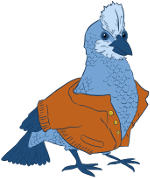
Come back soon to see how the next plan hatched.